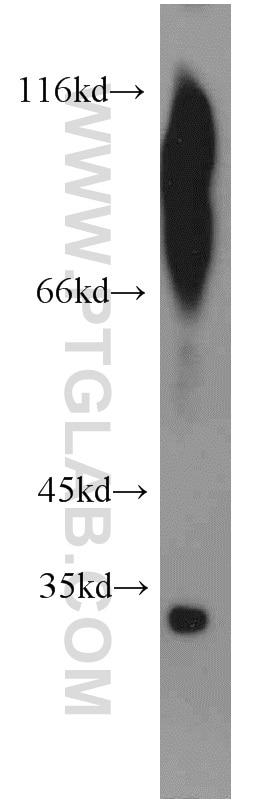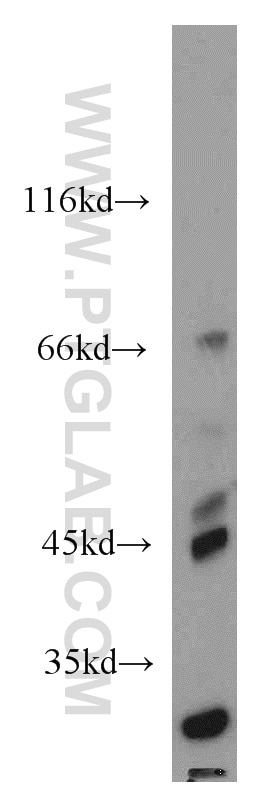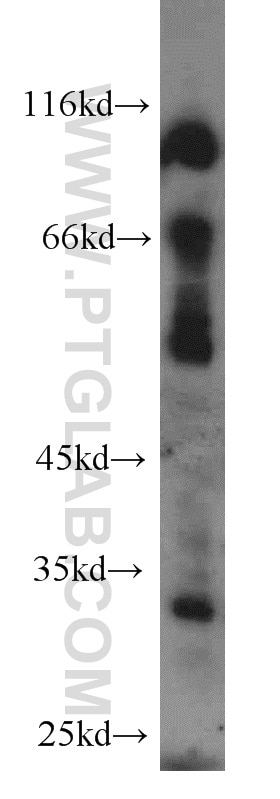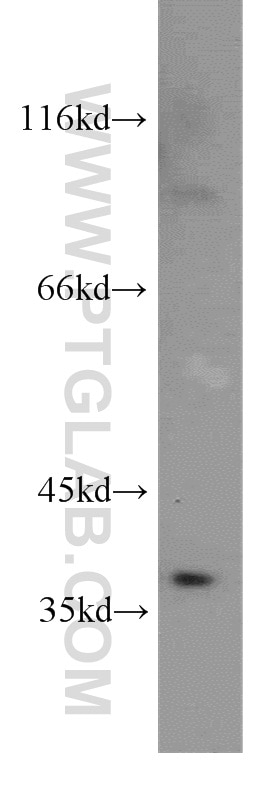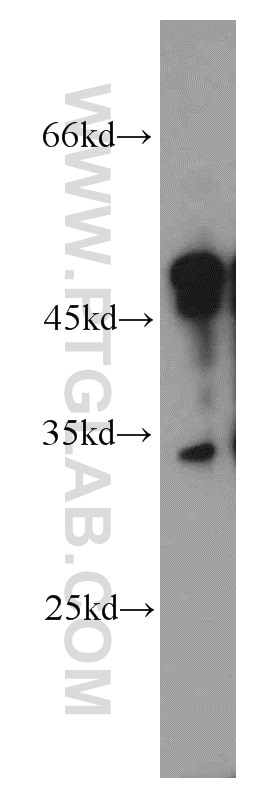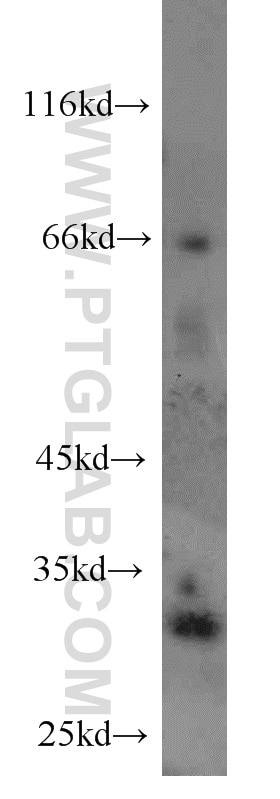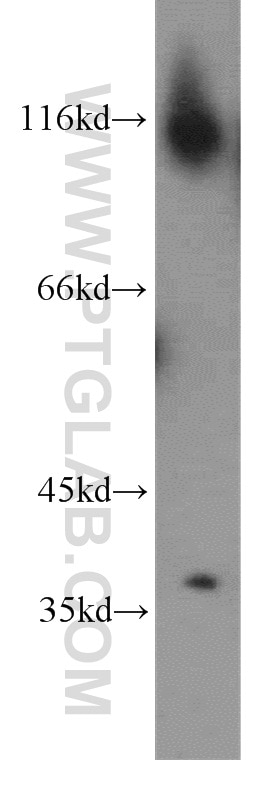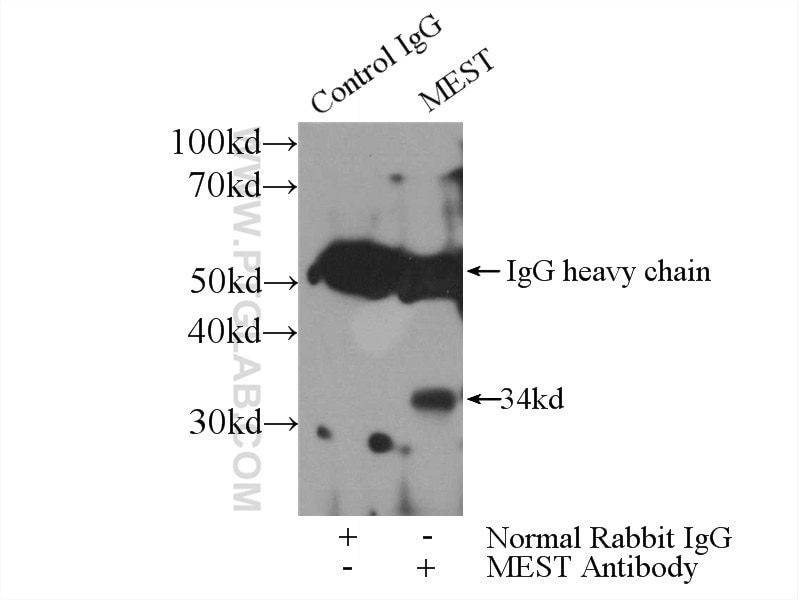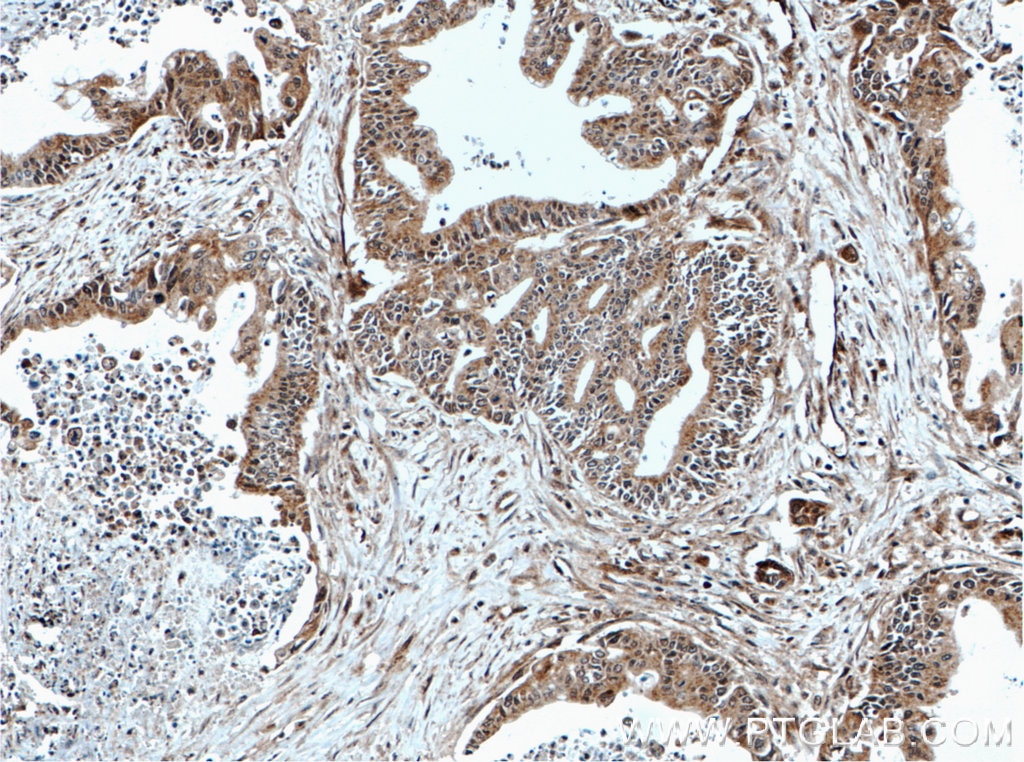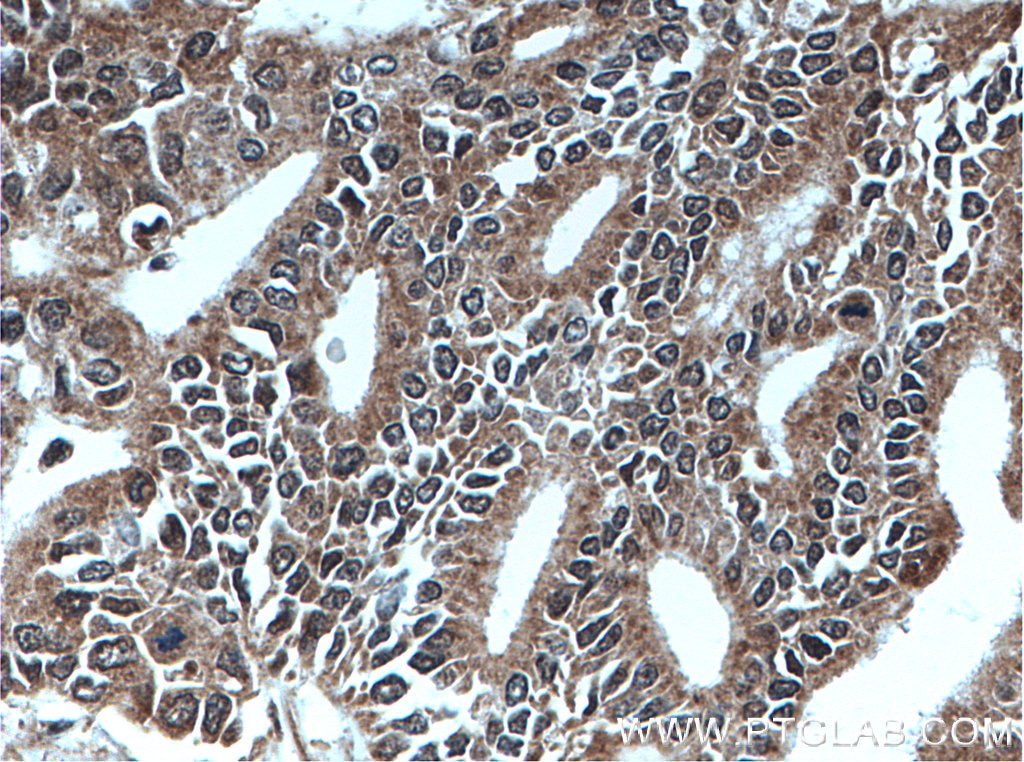Tested Applications
| Positive WB detected in | human testis tissue, mouse testis tissue, PC-3 cells |
| Positive IP detected in | PC-3 cells |
| Positive IHC detected in | human pancreas cancer tissue Note: suggested antigen retrieval with TE buffer pH 9.0; (*) Alternatively, antigen retrieval may be performed with citrate buffer pH 6.0 |
Recommended dilution
| Application | Dilution |
|---|---|
| Western Blot (WB) | WB : 1:500-1:1000 |
| Immunoprecipitation (IP) | IP : 0.5-4.0 ug for 1.0-3.0 mg of total protein lysate |
| Immunohistochemistry (IHC) | IHC : 1:50-1:500 |
| It is recommended that this reagent should be titrated in each testing system to obtain optimal results. | |
| Sample-dependent, Check data in validation data gallery. | |
Published Applications
| KD/KO | See 2 publications below |
| WB | See 9 publications below |
| IHC | See 3 publications below |
| IF | See 3 publications below |
Product Information
11118-1-AP targets MEST in WB, IP, IF, IHC, ELISA applications and shows reactivity with human, mouse, rat samples.
| Tested Reactivity | human, mouse, rat |
| Cited Reactivity | human, mouse |
| Host / Isotype | Rabbit / IgG |
| Class | Polyclonal |
| Type | Antibody |
| Immunogen | MEST fusion protein Ag1617 Predict reactive species |
| Full Name | mesoderm specific transcript homolog (mouse) |
| Calculated Molecular Weight | 38 kDa |
| Observed Molecular Weight | 34 kDa |
| GenBank Accession Number | BC011908 |
| Gene Symbol | MEST |
| Gene ID (NCBI) | 4232 |
| RRID | AB_2143740 |
| Conjugate | Unconjugated |
| Form | Liquid |
| Purification Method | Antigen affinity purification |
| UNIPROT ID | Q5EB52 |
| Storage Buffer | PBS with 0.02% sodium azide and 50% glycerol, pH 7.3. |
| Storage Conditions | Store at -20°C. Stable for one year after shipment. Aliquoting is unnecessary for -20oC storage. 20ul sizes contain 0.1% BSA. |
Background Information
MEST(Mesoderm-specific transcript homolog protein) is also named as PEG1 and belongs to the AB hydrolase superfamily. The gene is a imprinting gene, which is associated with growth of mesodermal origin cells(PMID:20339302) and plays important roles in embryo development(PMID:21375506). It is also a novel regulator of Wnt/CTNNB signalling during adipogenic differentiation(PMID:21375506). It has 3 isoforms produced by alternative splicing and the full length protein has a glycosylation site.
Protocols
| Product Specific Protocols | |
|---|---|
| WB protocol for MEST antibody 11118-1-AP | Download protocol |
| IHC protocol for MEST antibody 11118-1-AP | Download protocol |
| IP protocol for MEST antibody 11118-1-AP | Download protocol |
| Standard Protocols | |
|---|---|
| Click here to view our Standard Protocols |
Publications
| Species | Application | Title |
|---|---|---|
Cell Death Dis α1,3-fucosylation of MEST promotes invasion potential of cytotrophoblast cells by activating translation initiation | ||
Nucleic Acids Res Tissue-specific alternative polyadenylation at the imprinted gene Mest regulates allelic usage at Copg2. | ||
Gynecol Oncol Increased co-expression of MEST and BRCA1 is associated with worse prognosis and immune infiltration in ovarian cancer. | ||
Cancer Lett Novel target genes responsive to the anti-growth activity of triptolide in endometrial and ovarian cancer cells. | ||
Placenta DNA methylation-associated repression of MEST/PEG1 expression contributes to the invasion of extravillous trophoblast cells.
| ||
Placenta Maternal obesity and gestational weight gain are modestly associated with umbilical cord DNA methylation. |
